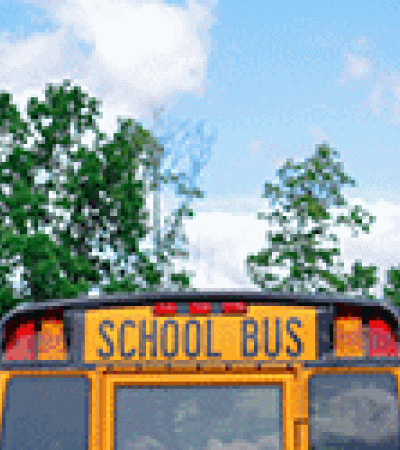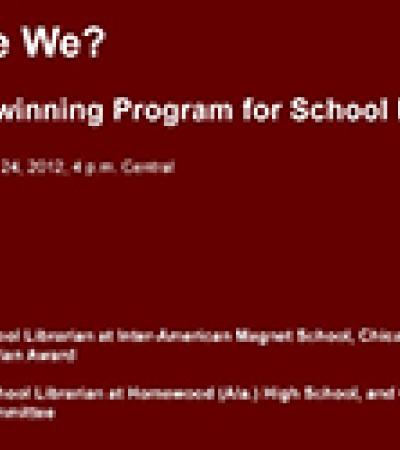In 2015, the United Nations established 17 Sustainable Development Goals (SDG) with the intent that these goals be met by 2030. In May 2019, the UN began an SDG Book Club for young people. The UN encourages young people to read the books that they hope “will inspire the children to help make the world a better place for everyone.”
The Junior Ambassadors Program at Batesville Intermediate School is using the SDG Book Club as a springboard to awareness of global issues. We are using the designated school-wide Response to Instruction (RtI) time for the Junior Ambassador students to further explore Sustainable Development Goals.
While all students at our school have a basic introduction to the SDGs, the Junior Ambassador students have additional opportunities to build their knowledge through research activities, listening to guest speakers and participating in special projects, all the while increasing their collaboration and leadership skills. The Junior Ambassadors then schedule presentations with every classroom in our building to engage students throughout the school.
The Junior Ambassadors Program was recognized with ALA's 2020 Sara Jaffarian School Library Award.
Advanced Planning
Nearly a year ago, a casual conversation about Batesville Intermediate School pursuing a more global perspective in education led to a lunch meeting with Hillenbrand, a local company with broad ties throughout our country and world, and the school library staff. The luncheon led to a planning committee with dynamic brainstorming and big dreams.
My assistant, Angie Moster, and I eagerly volunteered to lead the initiative, and an idea took shape for a student book club that focused on the United Nations' Sustainable Development Goals. Hillenbrand's team introduced us to the UN's Sustainable Development Goals and provided some financial support to our school library to purchase the recommended books.
By the end of August 2019, the 24 members of the Junior Ambassadors' charter group met for the first time: bright-eyed, curious and unaware of the revolution and ripples they would cause in our school and community.
Marketing
Our students have been interviewed on local radio, presented to other Batesville companies, and have been published in the local newspaper.
Budgeting
The purchase of the books are the only costs associated with this program. We partnered with local business Hillenbrand, used available high-ability grant money, and filled gaps with the library’s book fair extra-curricular account to secure the purchases.
As the UN SDG Book Club announces each reading list for an SDG, I purchase one of each title. (There are usually three to five titles per SDG.) After perusing each I then buy additional copies with the number dependent on how I think we will use the book. I also consider each book’s readability, length, cost and availability.
The books are housed in the library, and the number of copies for each title is determined by whether it will be used in-depth (30 copies) or to teach with (8 to 13 copies).
Day-of-event Activity
While reading a book related to the particular theme, we guide conversations with students about how these themes resonate locally and globally. The students brainstorm ideas on how they can educate others as well as take part in solutions.
Guest speakers join us almost weekly; they range from local food pantry administrators to state hunger activists to global partners working to improve the lives of those in Kenya and Haiti.
During each meeting, students work in pairs to create multimedia presentations, posters and public service announcements. The Junior Ambassadors then schedule presentations with every classroom in our building to engage and inform all 480 third-, fourth- and fifth-grade students throughout the school.
When the COVID-19 pandemic began in spring 2020, meetings and presentations continued virtually. Our school uses Canvas, and students were all members of a Junior Ambassadors course. Canvas offered a way to share announcements, resources and messages.
Prior to the pandemic students had learned how to use G-Suite’s sharing features so they were able to continue to collaborate with one another and me when creating teaching lessons, advertising, interviews, articles, etc. The Junior Ambassadors met three days per week via Google Meet throughout eLearning. and several student teams were able to present lessons to their assigned classrooms via Google Meet or Zoom.
Program Execution
Although there are only 24 Junior Ambassadors, their message has impacted every student and staff member in our building. They are problem-solving, building team capacity, researching, developing presentations, contacting community groups, engaging in interviews and sharing their messages. They have infiltrated the town of Batesville with the urgency of these very real issues.
They were able to launch their mission and introduce their projects through a "press conference" attended by families, Hillenbrand executives and the local newspaper. They planned, publicized and executed a school-wide Read-a-thon to raise money for the Grain-of-Rice project, with the funds to be used to build elementary schools in Kenya.
Although part of the funds were donated back to the school as a token of appreciation, the Junior Ambassadors agreed to use those funds to help children in Haiti (Haiti was the setting of the first book club book "Serafina's Promise" by Anne E. Burg.)
Advice
Because the United Nations published their Sustainable Development Goals as public resources, this program be easily replicated for in-person or virtual settings.
A successful program would include:
- A willing, informed and creative leader who is able to allow students to follow their heart
- A book club format
- A set time to meet several times each week
- Presentation component
- Expectations to utilize and engage with community partners
- A yearly capstone project that encompasses aspects of the Sustainable Development Goals
- Instruction in using digital platforms to ensure success when virtual meetings and collaborative work are required (e.g. Google Docs, Slides, Sheets)
Our basic framework worked well this first time so we think we will continue it:
- Use the main book of the UN book club, to introduce the SDG
- Delve deeper into the topic to more fully understand the need for the goal thru research, guest speakers and projects
- Provide teaching opportunities for our group that allows them to really grasp the topics and share the knowledge with the rest of our building.
We did spend more time at the start of the year making sure the students understood and could articulate what the United Nations and the Sustainable Development Goals are.
Our plan is to study the first 4 SDGs this year and then, in succeeding years, to review the first four and add additional goals.
Funding for this article series has been provided by the National Endowment for the Humanities (NEH) as part of Coronavirus Aid, Relief and Economic Security (CARES) Act economic stabilization plan.


